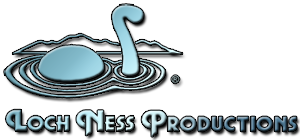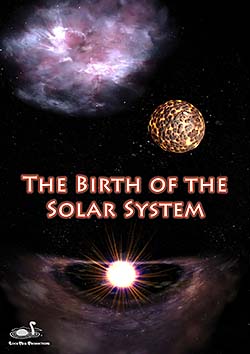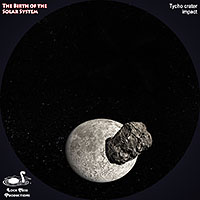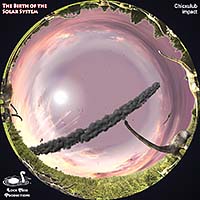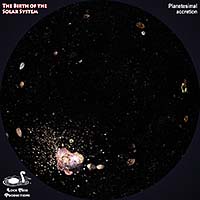The Birth of the Solar System
Witness the dramatic collisions that shaped the planets and moons!
How did our solar system originate? What chain of events led to its creation? Just as detectives look for traces of evidence to solve a mystery, astronomers analyze the evidence that points to the formation of the Sun and planets. In particular, they study the influence that impacts and collisions had on the worlds of the solar system. The most dramatic evidence for this collisional history of solar system evolution are the impact craters found on almost all the bodies in the solar system, including Earth. These surface scars tell us the formation history of planets, moons, and rings was violent. Yet today, we live in a relatively stable solar system, made possible by the shattering collisions that shaped our worlds.
This program gives us a unique look at the formation of the solar system by tracing the role that collisions played throughout its history. Beginning with the condensation of the initial cloud of gas and cosmic dust, we explore the history of planetary formation and the mechanism of accretion that played an important role in shaping the worlds of the solar system.
The Birth of the Solar System combines the videography and animation created by Antares Fulldome of Barcelona (who originally produced the show in 2008) with the soundtrack expertise of Loch Ness Productions. Our version features a revised script by Carolyn Collins Petersen, plus music from the vast resources of the original and popular planetarium space music library created by Mark C. Petersen. Mark also narrated and produced the soundtrack.
 Running time: 21:12
Running time: 21:12
Suitable for: Family audiences
Information about: Solar System
Year of production: 2010
Don't see the language you want? Let's work together with the producer to create it. Read more here!
The Birth of the Solar System is a unique look at the formation of the Sun and planets, and the resulting history of the solar system. It brings particular focus onto the role that collisions have played throughout the formational history of the Sun and planets. It takes viewers to places in the solar system to study the aftermath of collisions, and describes how the process of accretion shaped planets and how continuing impacts change their surfaces. These concepts are woven together into a documentary journey and help relate the information presented in the show to the lives of students, families, and the general public.
Show content is relevant in the following subject areas:
Physical Science, Life Science, and Earth and Space Science Standards
- objects in the sky: Sun, Moon, planets, moons, rings, comet nuclei, asteroids
- the role of accretion and impacts in solar system history
- properties of motion in space
- properties of solar system objects
- motions and forces
- transfer of energy
Science as Inquiry
- Understanding the concepts behind the formation and evolution of the Sun and solar system objects
Science in Personal and Social Perspectives
- History of the solar system and Earth's place in it
- early maps of the sky
- History of the solar system and Earth's place in it
- How we know what we know about the solar system's formation
